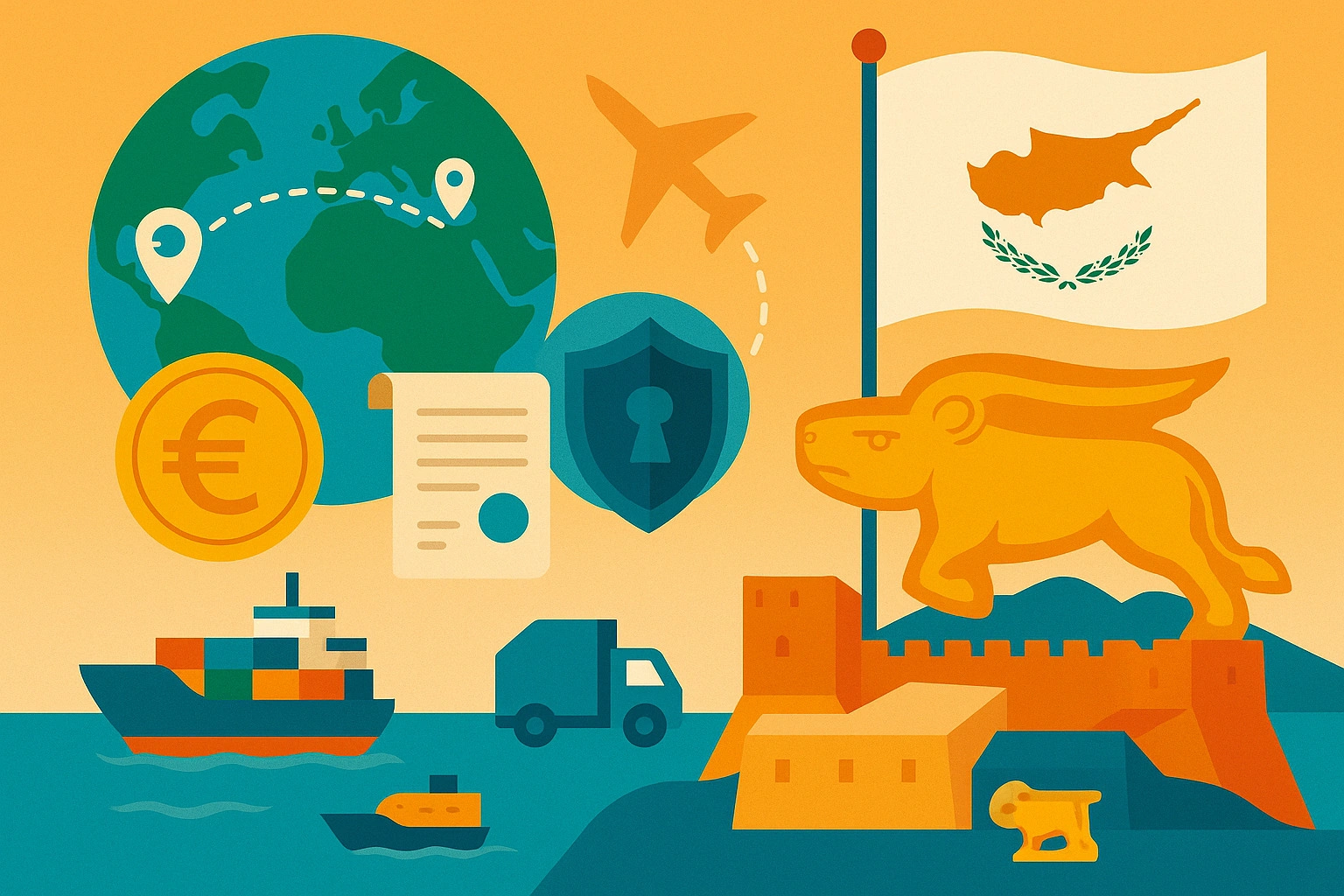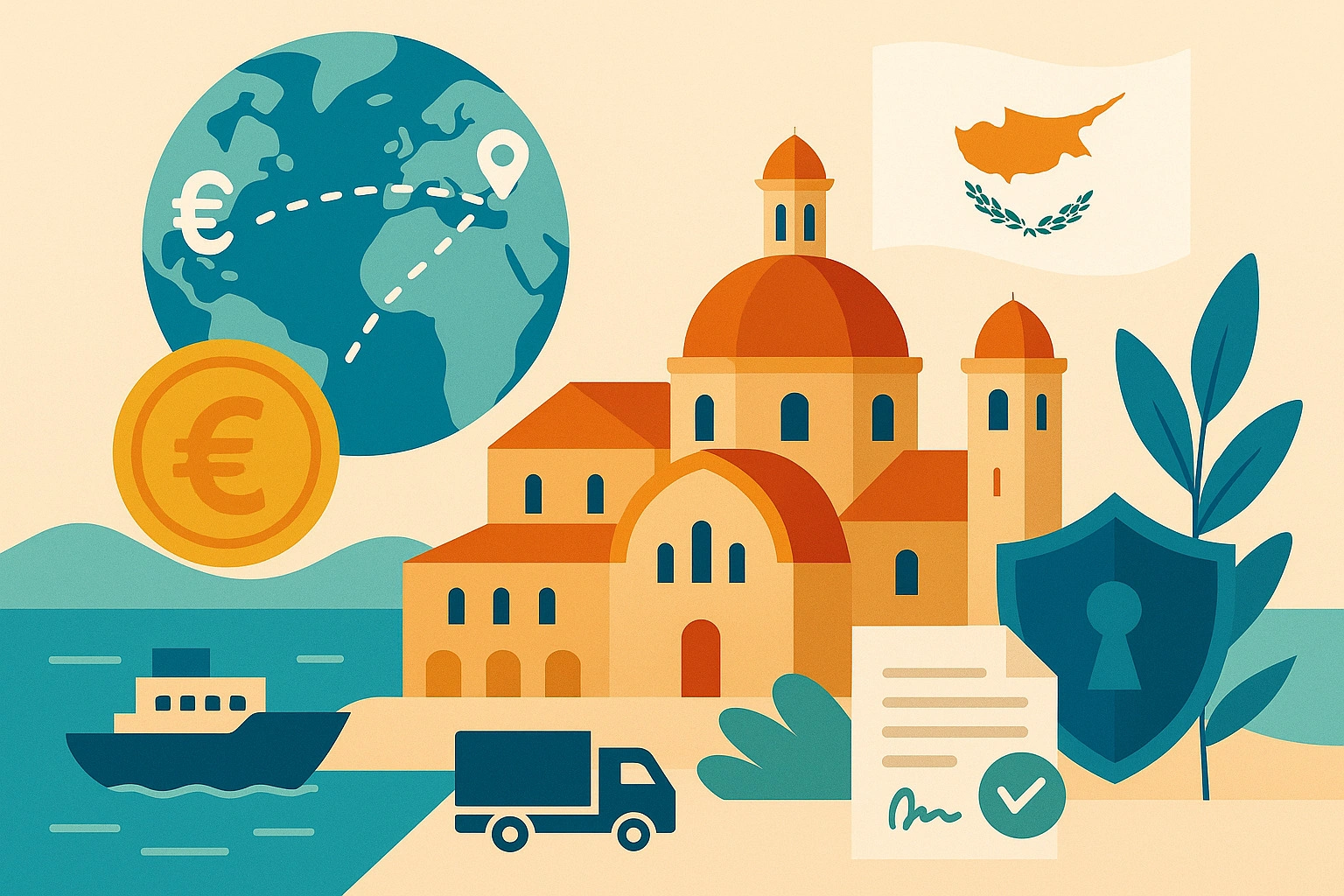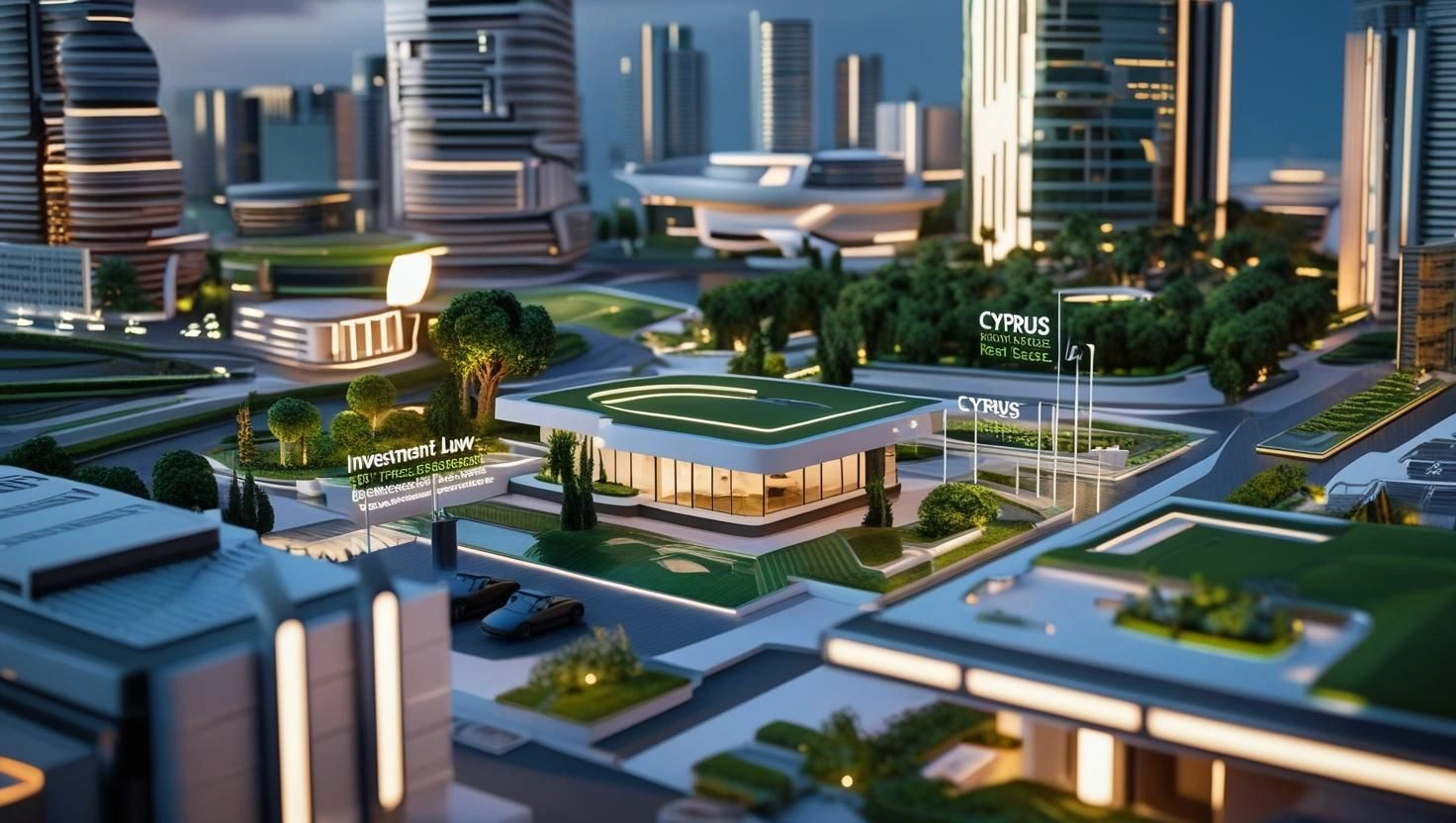Expat Relationship Counseling in LarnacaBuild sustainable well-beingunder Cyprus’s coastal climate

Advantages of Psychotherapy
for expats in Cyprus
Emotional Resilience Training
One-on-one virtual sessions combining cognitive restructuring and mindfulness, designed to reduce relocation anxiety, improve mood stability, and foster adaptive coping in Cyprus’s unique island environment
Virtual Cultural Integration
Interactive workshops exploring Greek and Turkish Cypriot social customs, language basics, and local etiquette, enabling expatriates to navigate community interactions confidently and reduce cultural misunderstandings
Remote Family Dynamics Support
Structured online therapy addressing shifts in household roles, intergenerational adaptation, and establishing supportive networks, to strengthen family cohesion amid relocation challenges
Emotional Resilience Training
One-on-one virtual sessions combining cognitive restructuring and mindfulness, designed to reduce relocation anxiety, improve mood stability, and foster adaptive coping in Cyprus’s unique island environment
Virtual Cultural Integration
Interactive workshops exploring Greek and Turkish Cypriot social customs, language basics, and local etiquette, enabling expatriates to navigate community interactions confidently and reduce cultural misunderstandings
Remote Family Dynamics Support
Structured online therapy addressing shifts in household roles, intergenerational adaptation, and establishing supportive networks, to strengthen family cohesion amid relocation challenges

Useful articles
and recommendations from experts
Global Market Guides
Investment Strategy & Planning
Cyprus
Exploring Investment Opportunities and Real Estate in Cyprus
Exploring Investment Opportunities and Real Estate in Cyprus
11.06.2023

Global Transactions
All
Popular
Cyprus
7 Best Ways to Handle Cross-Border Payments for Business and Property in Cyprus in 2025
Efficient, secure, and compliant routes to send money to Cyprus for corporate operations and real estate purchases
13.08.2025

Global Transactions
All
Popular
Cyprus
Buying Property in Cyprus: Legal and Financial Steps in 2025
Clear guide to secure and compliant property purchases
13.08.2025

Investment Strategy & Planning
Global Market Guides
Cyprus
Cyprus Real Estate 2025: Investment Laws, Market Overview & Buyer Guide
Cyprus Property Market: Who Can Buy, Where to Invest, and How the Laws Work
29.03.2025

Clinical Psychotherapy for Expatriates in Cyprus
Relocating to Cyprus represents more than a change of address; it triggers profound shifts in everyday life, personal identity, and social belonging. Straddling the crossroads of Europe and the Middle East, the island offers sun-drenched coastlines, a rich blend of Greek and Turkish Cypriot cultures, and a laid-back Mediterranean pace. While these qualities attract expatriates seeking sunshine and a relaxed lifestyle, they also introduce complex stressors: adapting to dual languages, navigating divided political jurisdictions, and reconciling contrasting cultural norms. Virtual clinical psychotherapy provides evidence-based support to address these unique challenges, combining professional expertise with the convenience of online sessions across time zones.
Understanding the Emotional Phases of Expatriate Relocation
The expatriate adjustment journey typically unfolds through five interrelated emotional phases. In the anticipatory anxiety phase, which may begin months before departure, individuals experience intrusive thoughts—“Will I manage local bureaucracy in Nicosia?” or “Can I fit into village life in Paphos?”—and associated sleep disturbances or muscle tension. Early virtual sessions focus on normalizing these reactions through psychoeducation and introducing foundational coping techniques such as diaphragmatic breathing, guided imagery of familiar coastal scenes, and establishing structured “worry time” to contain rumination.
Upon arrival, expatriates often enter a brief honeymoon period, energized by first impressions: the crystalline Mediterranean Sea, ancient ruins at Kourion, and vibrant village festivals. Optimism and curiosity foster engagement, as newcomers sample halloumi cheese, attend Orthodox Easter processions, or explore Larnaca’s salt lake flamingos. Yet, this initial uplift usually gives way to culture shock, when routine tasks—registering residency with conflicting authorities in the divided capital, understanding indirect communication styles, or shopping at bilingual municipal markets—trigger frustration, self-doubt, and homesickness.
As expatriates progress, the negotiation phase emerges. Clients begin to construct personalized strategies: morning mindfulness walks along the Promenade, graded language exposures—ordering coffee in Greek or Turkish—and journaling prompts to track mood fluctuations tied to seasonal tourism surges or off-season quiet. Virtual therapy assignments may include rehearsing key phrases via video chat and scheduling regular calls with social supports back home. Over time, consistent practice builds self-efficacy and reduces anticipatory anxiety.
In the adaptation phase, expatriates report a coherent sense of belonging: mastering Navigo ferry schedules from Latchi to Polis, cultivating friendships with local neighbors over coffee in Lefkara, and confidently advocating for healthcare services at private clinics. This phase marks emotional stabilization, as clients integrate personal values—community participation, cultural exploration, or family togetherness—into Cypriot daily life.
Evidence-Based Virtual Therapeutic Modalities
Virtual psychotherapy leverages multiple evidence-based approaches to address expatriate stressors within a cohesive treatment plan. After an initial intake—combining standardized measures (GAD-7 for anxiety, PHQ-9 for depression, PSQI for sleep quality) with a comprehensive interview exploring relocation challenges—therapist and client co-design a personalized treatment roadmap. This plan outlines session cadence (often weekly), targeted goals (e.g., reducing culture-shock intensity), and selected modalities, all delivered via secure telehealth platforms.
- Cognitive-Behavioral Therapy (CBT): Clients identify automatic negative thoughts—for example, “I’ll never fit in with Cypriot neighbors”—and challenge them through thought records and behavioral experiments such as initiating brief conversations in Greek. Detailed analysis of actual outcomes versus predicted catastrophes fosters balanced thinking.
- Acceptance and Commitment Therapy (ACT): ACT cultivates psychological flexibility, teaching acceptance of uncontrollable factors—like sudden summer heatwaves, winter rainstorms, or off-season business closures—and commitment to actions aligned with core values, such as exploring local history or maintaining creative routines despite environmental unpredictability.
- Mindfulness-Based Stress Reduction (MBSR): MBSR offers guided meditations, body scans, and mindfulness exercises adapted for online delivery. Imagery of gentle Mediterranean waves or shaded olive groves anchors attention in the present, interrupting rumination and reducing physiological arousal related to relocation stress.
- Interpersonal Therapy (IPT): IPT enhances communication skills and addresses role transitions. Role-play modules simulate interactions with municipal officials in Nicosia, negotiating rental agreements in Limassol, or joining bilingual community groups, reinforcing assertiveness and reducing social anxiety.
- Behavioral Activation: Behavioral Activation counters low mood and withdrawal by collaboratively scheduling positively reinforcing activities—online virtual tours of Kykkos Monastery, remote participation in daily beach yoga, or digital gatherings with Cypriot food enthusiasts—then debriefing experiences to maintain motivation.
Navigating Cyprus-Specific Environmental and Sociocultural Stressors
Cyprus’s Mediterranean climate and island geography introduce distinct adaptation demands. Long, hot summers—with temperatures often above 35 °C—can disrupt sleep and exacerbate irritability; winters, while mild, bring brief spells of rain and humidity. Therapists teach climate-specific sleep hygiene: using blackout curtains to block strong dawn light during summer, light-therapy lamps to compensate for occasional winter overcast, and guided progressive muscle relaxation to alleviate heat-induced tension.
Island life entails unique logistical factors. Expatriates must adapt to narrow mountainous roads in the Troodos range, occasional ferry delays, and bilingual signage that alternates between Cyrillic, Latin, and occasionally Turkish scripts. Virtual sessions incorporate “commute mindfulness”: box-breathing exercises before departures, sensory-grounding during urban transit in Larnaca or Limassol, and digital route rehearsals that map alternative travel plans when infrastructure constraints arise.
Cyprus’s divided governance adds bureaucratic complexity. Clients may need documentation from both the Republic of Cyprus and Northern Cyprus authorities, leading to confusion and stress. Therapists equip expatriates with anticipatory planning frameworks: creating step-by-step checklists in multiple languages, role-playing appointment conversations in both Greek and Turkish contexts, and cognitive reframing to view procedural delays as systemic rather than personal failures. Celebrating administrative milestones—residency approvals, business registrations—bolsters resilience.
Strengthening Family Dynamics and Long-Term Resilience
Family relocation amplifies stressors, as members adapt at different paces. Partners may recoil in offices in Paphos asking for property titles, while children navigate international school environments and cross-cultural peer dynamics. Virtual family therapy offers a guided space to address these shifts. Techniques such as active-listening protocols and “I-statements” (“I feel anxious when our schedules don’t align”) foster mutual empathy, clear communication, and joint problem-solving.
Identity-mapping exercises engage each family member in reconciling pre-move roles—professional, caregiver, community member—with emerging Cypriot identities, such as “Mediterranean explorer” or “bilingual connector.” Shared digital whiteboards visualize which aspects to preserve, adapt, or develop, forging a cohesive family narrative that honors both origin and new experiences.
Long-term resilience planning includes scheduled booster sessions at three, six, and twelve months post-move. These check-ins revisit coping strategies, address emergent stressors—particularly seasonal tourism cycles, educational milestones, or evolving EU accession dialogues—and celebrate adaptation achievements. Intentional rituals—annual virtual reflections on relocation anniversaries, accompanied by photo collages of Cyprus’s seasonal beauty (spring almond blooms, autumnal grape harvests)—anchor progress and solidify belonging. By integrating individual, social, familial, and environmental interventions within a comprehensive virtual framework attuned to Cyprus’s unique context, clinical psychotherapy empowers expatriates and their families to navigate relocation stressors, cultivate lasting well-being, and truly thrive on their new island home.
